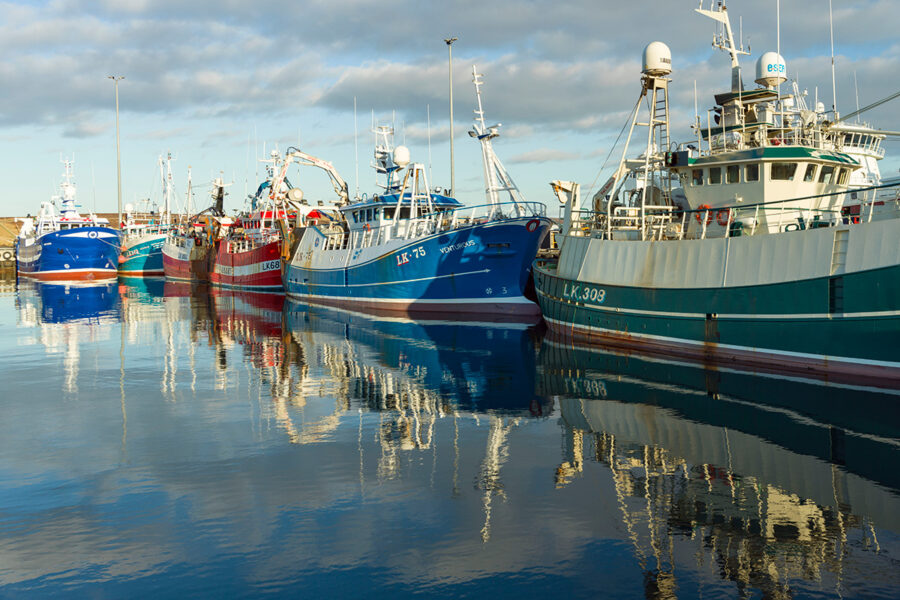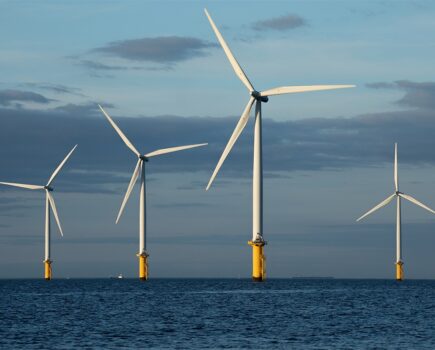Two NGOs, Oceana and the Blue Marine Foundation, have launched a widely reported attack on the fuel tax exemption provided to the UK fishing industry, claiming that this is ‘threatening to empty the ocean of fish’.
The attack follows a peer-reviewed analysis, published last year, that suggested that several fuel-intensive sectors of the UK fleet would be unprofitable if the fuel tax exemption was withdrawn.
The paper, which included authors from English Nature and Oceana, used a variety of published statistics, including those from the Seafish cost and earnings survey, to support its claims. However, its analysis did not include factors such as the impacts of changed fishing activity by the UK fleet if the exemption was ever withdrawn, or differentiate between older vessels in fleet segments with very different fuel efficiencies.
As ever with these issues, the headline reporting of the latest attack was alarmist. As well as ‘emptying the ocean of fish’, the Guardian reported the ‘subsidy’ as being ‘up to £1.8bn per decade’ – a rather dodgy use of statistics from a paper that looked at figures for only a few years. The maximum annual ‘subsidy’ over this period was estimated at £180m, with most years considerably lower than this.
With the continued transition of the UK trawl and scallop fleets to a new generation of vessels with stern gear and engine combinations that are halving fuel consumption for the same fishing power, and a continued reduction in the size of the fleet, the ‘up to £1.8bn billion per decade’ claim is an accounting fiddle that would not stand up to any real scrutiny.
The NGOs make no mention of the relatively small carbon footprint per kilogram of fish landed by the larger vessels in the UK fleet, or the new generation of vessels that already provide one of the lowest-carbon protein foods available.
Charles Clover, co-founder of the Blue Marine Foundation, said: “The government has never admitted that it was dishing out anything like this much in tax breaks to the fishing industry. This indicates that, until this paper was published, the Treasury simply did not know what it was doing.
“We will not be alone in calling for these unjustifiable and idiotic subsidies to be phased out as soon as possible.”
Removing the tax concession overnight would spell ‘disaster’ for parts of the industry, admitted Daniel Skerritt, from Oceana Canada, one of the paper’s co- authors. “I don’t want to see the end of the fishing industry. But I also don’t want a fishing industry that’s using excessive amounts of fuel, or being propped up by taxpayers’ money.”
As is all too typical of the Guardian’s fisheries reporting, the report also trotted out the ‘fact’ that trawling releases a gigaton of CO2 annually–as much as the entire aviation industry. Except of course it doesn’t. That figure, taken from a flawed scientific paper that was subsequently retracted by the authors, has long since been discredited.
Mike Cohen, CEO of the NFFO, told Fishing News: “There always seem to be some in academia and the charities sector who find that they can make a good living pulling in grants and donations by attacking fishermen. Perhaps it is because a working- class industry, largely composed of small businesses, doesn’t have the money or the connections to play them at their own game.
“Whatever the reason, a newspaper is again trotting out discredited claims about the carbon emissions of fishing fleets and a handful of academics and NGOs are pretending that fuel duty rates are subsidies.
“Let’s be clear: there are many different rates of tax on fuel, and they vary according to the type of fuel and its user. That is not the same thing as a subsidy.
“Charities that campaign to close fishing down don’t pay tax on most of their profits, and get a huge discount on their business rates.Isthatasubsidy?
“When no one in Britain can afford to produce our food any more, we can just import it all. I wonder what that will do for the nation’s carbon footprint? Or maybe we should give up on food altogether and just eat grant applications?”
Elspeth Macdonald, chief executive of the Scottish Fishermen’s Federation, said: “It’s ludicrous for Oceana to suggest that the UK’s fishing fleet is trying to ‘empty the ocean of fish’ with the aid of fuel subsidies.
“The sector is fully committed to sustainable fishing of what is a very necessary healthy protein foodstuff with a low carbon footprint, and the vast majority of commercial species in our waters are harvested in this way.
“Like all sectors of the economy, those working in fisheries are adapting their technologies to reduce even further their impact on the marine environment, but the transition will take time, and a withdrawal of fuel subsidies would simply inflate prices at what is a difficult enough time for consumers.”
By Andy Read, Editor, Fishing News
This story was taken from the latest issue of Fishing News. For more up-to-date and in-depth reports on the UK and Irish commercial fishing sector, subscribe to Fishing News here or buy the latest single issue for just £3.30 here.
Sign up to Fishing News’ FREE e-newsletter here.








